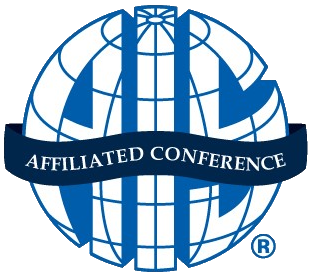Social media intelligence for small and medium enterprises
Description of the workshop
Social Media is already very well-known and widely used in the professional world. Researchers and scientists are focusing more and more deeply in this area (Dutot, 2013; Castelló and Ros, 2012; Proulx et al., 2012). But there is still a great deal of misunderstanding as to how it can be used effectively by business organizations, and especially by small and medium business enterprises (SMEs). As pointed out by DeLone (1988) or Thong et al. (1996), SMEs have specific characteristics that justify their studies regarding IT. More precisely, SMEs often lack in-depth IT/IS knowledge within the organization and they have limited funds as well as technical resources (Zhang et al, 2007).
There are many claims that social media is essential to business, but understanding the hard science behind how this relatively new technology can create solid ROI or generate efficient CRM can be confusing. Castronovo and Huang (2012) explained that the “effective use of alternative marketing approach (social media) can be especially advantageous for SMEs”.
For many, Social Media and Business Intelligence are now inseparable (Nagle and Pope, 2013). Indeed, even the most basic user of any social network asks himself such questions as “How many followers do I have?” or “What’s trending today?” and it is the job of Business Intelligence to tease out these answers in a comprehensive and scientific way so that the information can be organized and stored in a way that provides business value and improves decision-making (Power and Philips-Wren, 2012, Guillemette and Foley, 2011).
Combining social media and business intelligence allows companies to gain competitive edge, cut costs and release products with a higher degree of success, becoming crucial for small and medium enterprises (Murdough, 2009) It is part of their strategic orientation to define the best ways of using social media in order to improve their business intelligence and performance (Zhou et al, 2007; Lee and Chang, 2011). It should allow them greater audience reach, more effective targeting and greater cost savings. As the same time, advertising and marketing can be created more efficiently, and changes within the organization are made (Weman, 2011; Divol et al., 2012). For SMEs, understanding these changes, the impact on their structure, as well as the new resources, is crucial. Overall, social media, as previous technologies, should help SMEs to develop their competitive advantage (business opportunities, nurturing relationships, or organizational knowledge).
This workshop looks for articles that extend the literature on social media intelligence related to SMEs. The main objective is to help us understand how the data from social media can be used by SMEs in order to improve their organizational decision systems, launch new products, and overall performance. It also wishes to help SMEs in their IT investment considering their specificities. This workshop is intended to focus on but not limited to the following themes applied in an SME context:
- Social Media Management for SMEs
- Business intelligence and CRM
- Metrics and their effectiveness in social media intelligence
- Social Media adoption and SMEs’ performance
- Social media intelligence strategy
Duration
Half day
Workshop organizers (incl. contact details)
- Vincent Dutot, ESG Management School, France (vdutot@esg.fr)
- Elaine Mosconi, Sherbrooke University, Canada (Elaine.Mosconi@USherbrooke.ca)
Description of submission handling
Full articles as well as in progress articles can be submitted for the workshop. Conceptual and applied research results as well as survey results about social media intelligence.
Articles should be no longer than 8 pages (no-including references and appendix)
The formatting of the articles should follow Journal of Decisions Systems requirements.
Format of the workshop and duration
Opening session of 10 minutes – Introduction to social media and business intelligence for social media intelligence
3 presentations of 20 minutes + 10 minutes for questions/discussions; (1h30)
Networking break (20 minutes)
3 presentations of 20 minutes + 10 minutes for questions/discussions; (1h30)
Closing session of 30 minutes – Discussion of future social media intelligence perspectives and challenges
Plan for proceedings and publications / journal special issue
Authors of the best papers presented will be invited to submit their paper to Journal of Decision systems
Expected publication: 4th Quarter 2015
Important deadlines
Deadline for short paper submission: December, 30th 2014
Notice of acceptation/rejection: January, 31th 2015
Revised paper submission: March, 30th 2015
Final decision: April, 30th 2015
About the organizers
Vincent Dutot is an associate professor and co-Head of Chair D-Cube at ESG Management School, Paris, France. He holds a Ph.D from Laval University (Québec). His areas of research are in social media, IT strategy, strategic alignment of information technology, electronic commerce, and knowledge diffusion. He published in journal such as International Journal of Information Management, International Business Research, International Journal of Entrepreneurship and Innovation Management or European Journal of Innovation Management. He has been in charge of two international conferences held in France during the last 3 years (with workshops) as well as being the guest editor for several special issues in journals such as International Journal of Technology and Human Interaction, Journal of Decision Systems, International Business Research, or ISMO. He participated as a reviewer for international conference such as ICIS, HICSS or AMCIS.
Elaine Mosconi is an assistant professor at Sherbrooke University (Canada). She holds a Ph.D from Laval University (Canada). She has actively participated in some scientific committee for regional conferences in Canada and Brazil. Also, she participates at the scientific committee as a reviewer for conferences and some academic journals Academy of Management since 2008, AMCIS, AIM, ASAC since 2009, ICICKM since 2009; Transnational Corporations Review (TNCR), Information Systems Frontier; etc.


